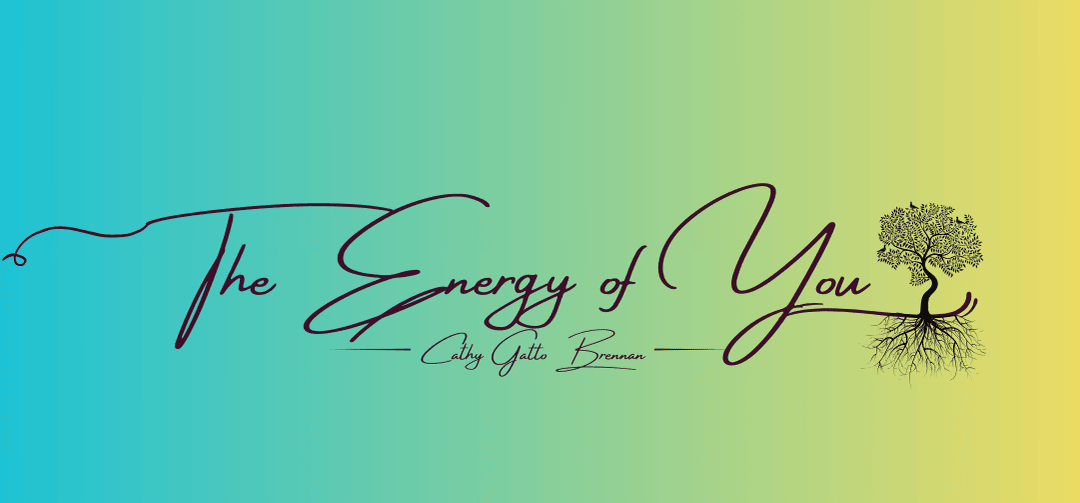|
The Energy of You Volume XX Issue #20
Hi Reader, “What if a huge boulder rolled down the hill onto the road in front of us and a bear was hibernating on top of it?” my 8-year-old son excitedly asked as he bounced in his seat. It was a favorite car game, the ‘What If’ game. All of the kids got a turn to spin a fantastical scene, and I had to find a solution. We all got a ton of laughs from that game, and it kept them thoroughly entertained. Fast forward many years, and I see the ‘What If’ game playing out with much higher stakes all around me. It’s something we all do as we try to mitigate risk and make the best choice. The thing is, you can’t know all the variables, so trying to second-guess them just causes you stress.
Why Change Feels Hard Your brain takes your experiences and stores them, creating habits of thought and behavior based on what was done in the past. When we change something, it forces us to see things in a new way. This increases the engagement of the prefrontal cortex by up to 25%. Because your brain constantly looks for ways to be efficient and increased engagement means more work the brain looks to slow the roll. Creating an inherent aversion to change, we all experience and lends itself to the ‘what if’ game. What if I look foolish? (What if you don’t) What if I fail? (You will have learned a thing or two for next time) What if I make the wrong choice? (You can choose again) What if I say the wrong thing? (Maybe it’s exactly the right thing) What if it’s too hard?(You’ll stretch and grow) A Midlife Checkpoint All of these questions lean heavily into remaining in the status quo as an easier option. This becomes more salient at transition points. Say, when you get to the halfway mark, otherwise known as midlife, you assess your progress either consciously or subconsciously. It’s a checkpoint. Am I where I should be? Am I where I want to be? Does this life really fit me anymore?
Self-reflection bubbles up. What is my path? My purpose? My legacy? A crack forms in the status quo, nudging you toward a deeper spiritual pull that disrupts your current reality. It may be a slow awareness that tugs at you, or perhaps it’s an abrupt change or loss that triggers the awareness. You find yourself questioning things that once seemed steady. Doubt, discontent, and uncertainty creep in.
This assessment is often met with resistance, reluctance, and confusion. After all, it’s not like you get an email that says : Dear Reader,
It’s time to change careers from XYZ company to your own pottery business. Please begin this new endeavor next Friday at 8:00 a.m. You are guaranteed success, but you will hit a slow spot 3 months in. Simply ride it out, and all will be well.
Love,
Your Inner Wisdom
The Spiritual Pull While your brain is wired to protect the familiar, your spirit is wired to evolve. This tug-of-war shows up in the body and energetically. You might begin to feel a pull from something deeper. In energetic anatomy, that pull often correlates with the 11th (Etheric) chakra. It’s a call to transform all that you have experienced into something with deeper meaning and more aligned with your purpose.
Change can be scary. This call to adventure has some weight to it. It feels important. How do you know if it’s simply a bad day, week, or month ,or if your soul is calling you?
3 Telltale Signs You’re Resisting
Grumbling – a persistent, low-level dissatisfaction with the status quo that keeps popping up frequently, followed by doubt and uncertainty. You can push it away for a little bit, but it keeps popping up.
Hypercriticism – microanalyzing everything that’s been done and finding fault with everything. This is most often directed towards yourself, but can be towards another person or a situation. It is very different from honest self-evaluation and critical thinking. It’s more akin to creating a heavy mental club with which to pound yourself with.
Swirling – The more you try to rationalize, the worse it gets. You think: ‘What the hell am I doing?’ Convinced you’ve lost the plot, you double down on the familiar. ‘Everything’s fine,’ you tell yourself. You bargain: ‘If I just stay positive, it’ll pass.’ This often occurs right before you fall asleep or during a 3 am wake-up. The solution is most definitely NOT to put a happy face on and suffer in silence.
The call to adventure, to shake things up a bit, happens many times throughout your life. The one at midlife seems more significant, because it is. It’s what Brene Brown calls the midlife unraveling. Everything is up for evaluation. That’s actually a really good thing. Rest assured it isn’t all about dramatic, rash action. It’s often about fine-tuning, leaning in to trust yourself, and believing that you can do this thing.
Integration: One of the first steps is to soften your resistance. Explore what your possibilities are. Flip the ‘What If’ game. What if I changed jobs…then imagine the best possible outcome (think expansively). Do this with everything that pops up to help you ease back the resistance and reluctance to change.
Once the resistance is turned down, watch for synchronicities. Notice what you’re feeling. That spark of curiosity, nervous excitement, or deep satisfaction…. follow that. Explore. Live. Experiment. Has ‘What If’ been playing on repeat for you lately? Hit reply and share—I’d love to hold space for it with you. Cathy
P.S. If you like this newsletter and want to support it, there are 3 Ways! PICK ONE right now before you forget🌺 |

